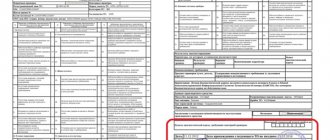Changes to Federal Law 69 on taxis
The text of the document was adjusted in 2012 and 2014.
In 2012, Law No. 34-FZ dated April 23, 2012 made the following changes:
- Article 9 of Federal Law 69 was supplemented with information that must be included in the application for a permit to work in a taxi. A closed list of documents has been established that may be required from the carrier when obtaining a license.
- In accordance with the new edition of subparagraph D of Part 16 of Article 9, a taximeter is installed in the car if the cost of the trip is determined by the readings of such a device.
- Now you can only get 1 permit for 1 car.
- Taxi chartering is possible only on the territory of 1 subject of the federation. Exception - the destination is in another subject.
When the new law No. 307-FZ of October 14, 2014 came into force, paragraph 4 of paragraph 17 of Article 3 was excluded from the text. It concerned a ban on operating a car after certain traffic violations were identified.
The State Duma is considering a draft of a new law that would provide for changes to the rules for taxi operations. The amendments should regulate the operation of ordering services that provide customers with information about cars and the cost of travel in electronic form (for example, Uber).
Deputy V. Lysakov, in a comment to Rossiyskaya Gazeta in May 2017, argued that the changes would be adopted in the fall of that year. However, there was no further news on this matter.
Article 2. Organization of transport services for the population in the field of taxi transportation
1. Transport services for the population in the field of taxi transportation are organized by the authorized executive body of the city of Moscow, which carries out management in the field of transport (hereinafter referred to as the authorized body), in cooperation with the territorial executive authorities of the city of Moscow.
2. In the city of Moscow, a permit for taxi transportation (hereinafter referred to as the permit) is issued by an authorized body (as amended, put into effect on September 1, 2011 by Moscow City Law No. 29 of June 22, 2011 - see the previous edition).
3. The permit is issued for a period of five years (part additionally included from September 1, 2011 by Moscow City Law No. 29 of June 22, 2011).
4. The form of the permit, the procedure for its issuance and renewal, the amount of the fee for issuing a permit (duplicate permit) are established by the Moscow Government (part additionally included from September 1, 2011 by Moscow City Law No. 29 of June 22, 2011).
Traffic regulations for taxis
Drivers are required to comply with all regulations. According to traffic regulations, a taxi can move in the lane intended for public transport on the basis of clause 18.2.
But this is not always possible in practice. For example, in Moscow and some other cities, entry to the lane for public transport is limited by sign 3.1. Taxi drivers in such a situation cannot drive in a designated lane.
Taxi drivers do not have the right to stop in places where stopping is prohibited by sign 3.27. Only route transport can deviate from the requirement of this sign.
Drivers are also required to comply with the requirements for transporting children in special restraints. If there is no such element, the driver is obliged to refuse the trip.
We need control over drivers, not over cars
However, the coordinator of the “Stop Illegal” movement and “Forum Taxi” Evgeniy Grek does not agree with him. In a conversation with News.ru, he explained that “it is more important to issue a permit not for the car, but for the driver, which will make it possible to understand who and in what quantity works in the same taxi car.”
Several taxi drivers can drive one car with a false license.
Evgeniy Grek
coordinator of the “Stop Illegals” and “Forum Taxi” movement
Grek said that a recent raid revealed that “9 out of 10 taxi drivers arrive either with fake documents, or under the influence of drugs, or without any documents at all.”
Although on the outside the car seems to have checkered signs and all sorts of permits ,” he clarified.
The expert believes that the safety of passengers can be improved by the law limiting the tariff appetites of aggregators.
Up to 90% of earnings are now taken by aggregators. At the same time, when something happens to passengers, they say that they are an information service and do not want to be held responsible for anything. They say they don’t have their own drivers or their own cars. But precisely because aggregators take the lion’s share of revenue from taxi drivers, they are forced to overwork, which significantly impacts the safety of Russian passengers ,” said the traffic coordinator.
Grek cited statistics that, according to independent data, today 92% of illegal immigrants work in taxis.
That is, the taxi market is deep in the “shadow ,” he said.
Rules for transporting passengers in taxis and requirements for taxi drivers
The concept of a passenger taxi is enshrined in Decree of the Government of the Russian Federation No. 112 of February 14, 2009. This is a car of category M1, used for transporting people and their luggage under a public contract.
The transportation rules are enshrined in section 4 of the document. The passenger does not have the right to make amendments to the charter agreement, since a separate agreement is not concluded. When ordering, he agrees to the current conditions.
The client is informed about the delivery of the car. The salon should contain information about:
- carrier name
- rules for using transport;
- tariffs;
- driver (full name, photo, etc.);
- information about the government agency that controls taxi transportation.
To obtain a work permit, a taxi driver must have at least 3 years of driving experience.
Is it possible to circumvent the law, what are the risks?
The presence of gaps in the draft allows you to interpret some of its provisions in your favor. The current version of the Taxi Law does not prohibit the issuance of licenses to drivers of rented cars. If the contract is formalized, or the driver has a power of attorney, then he can obtain a license to operate a hired vehicle.
There are no clear requirements regarding taxi attributes. This allows the driver to use removable elements. As for the tachometer, a smartphone application can play its role.
But without a license it will not be possible to serve passengers. The first violation entails a fine; for the second, the court deprives the driver of his license for up to six months.
Taxi identification marks by law
To select carrier vehicles from the total mass, the following is used:
- yellow lamp on the roof of the car;
- squares of contrasting colors, arranged in a checkerboard pattern;
- color scheme, if requirements for the color of cars are established at the level of the subject of the federation.
The indicated identification marks are approved in paragraph 1 of part 14 of article 9 of law No. 69-FZ.
In the Moscow region, cars must have a certain color scheme: the main color is white, a yellow stripe from 15 to 25 cm on the sides, a gray stripe at the bottom of the body. In other regions, authorities may not require carriers to paint their vehicles in special colors.
Taxi licensing, how to get a license, step by step procedure
The carriage of passengers is not subject to licensing. The interested person only needs a work permit. It is issued to organizations or individual entrepreneurs by the body that, at the level of the subject of the federation, regulates relations in the field of transport.
The following documents will be required:
- statement;
- citizen’s passport (or statutory documents of the organization);
- car registration certificate;
- a copy of the lease agreement or other agreement if the car is not owned by the applicant.
The application must contain the following information:
- FULL NAME. Individual entrepreneur or name of organization;
- legal address;
- TIN;
- contact details (phone, email).
Government authorities are required to issue permits to all applicants who own or use passenger cars.
In what cases can a license be revoked?
Permission will be revoked in the following cases:
- the driver does not have sufficient driving experience;
- repeated violation of legal requirements for the designation of a car or for the operation of a taximeter;
- due to the fault of the driver, an accident was committed that resulted in the death of a person or caused serious or less serious bodily harm;
- the driver has repeatedly taken orders in another subject of the federation, where the permit is not valid.
The permit is revoked only by court decision.
Law on taxi fines
If a citizen has a work permit, but it is not in the car, then he will have to pay a fine of 5,000 rubles (Article 12.3, clause 2.1 of the Code of Administrative Offenses of the Russian Federation).
For failure to issue a check after payment, the driver is prosecuted under Article 11.14.1 of the Code of Administrative Offenses of the Russian Federation. For this, a penalty of 1,000 rubles is required.
If transportation is carried out in a car that does not meet state requirements (for example, the “checkerboard” is not applied), then the taxi driver will pay 3,000 rubles based on Article 11.14.1. Code of Administrative Offenses of the Russian Federation. The fine for the organization is 50,000 rubles.
Main content of the law
The Federal Taxi Law stipulates 4 documents that must be submitted to the licensing authority. Please note that the procedure for its registration has been simplified. One license is given per car. Submit an application using a special form, to which copies of documents are attached:
- identity cards of the applicant or his representative;
- vehicle registration certificate;
also an extract from the Unified State Register of Legal Entities/Unified State Register of Individual Entrepreneurs about the tax authorities.
This list is valid on the territory of the Russian Federation and is unchanged. The application can be submitted online through the government services website, and you will receive permission by mail.
Benefits of the new law
Some changes to the taxi law make it easier to obtain a permit, simplify licensing, and reduce operating requirements.
- Permission is given for your own vehicle, as well as for a vehicle rented or driven by proxy. If the applicant provided false information about the car or about himself, the license will be denied.
- The driving experience required for licensing has been reduced from 5 years to 3.
- The inspection of a taxi is equivalent to the inspection of personal vehicles; the requirement to have a maintenance coupon has been removed.
- Interregional transportation is now allowed, unless there is a special interregional agreement, the main thing is that the application for taxi services is submitted in the region where the license was issued. If there is an interregional agreement, then taxi drivers are allowed to provide services in each of them.
Taxi requirements
- The color scheme of taxis is determined by regional authorities. Each region may approve multiple color options. If a region establishes a single color scheme, then it must be respected.
- On the sides of the body you need to install a color scheme consisting of squares arranged in a checkerboard pattern, made in contrasting colors.
- An identifying orange light is installed on the roof.
- A taxi meter must be installed on a taxi when payment for the service depends on the time spent on the trip or on the actual mileage (in the absence of approved fixed tariffs).
- Legal entities and individual entrepreneurs undertake to carry out the following activities:
- daily monitor the technical condition of transport before it enters the line;
- require drivers to undergo a medical examination to obtain permission to drive a car.
Features of issuing licenses
The Law on Minibus Taxi establishes the rules for issuing licenses for carrying out passenger transportation activities, which are issued by a special regional body - a division of the Ministry of Transport.
The license is issued for a period of 5 years. If a permit is refused, the applicant is notified of this no later than one month after submitting the application.
If a legal entity or individual entrepreneur changes the registration data, the license can be reissued. If the permit is lost, it takes 10 days after submitting the application to restore it.
All issued licenses are registered in a register, which is posted by the authorized body on a website with free access.
The license must be in the taxi cabin; the driver must be able to present it at the request of the relevant inspectors.
When the traffic police identify violations in the activities of taxis, they issue an order to license holders to eliminate the violations, for which they are given one month. Owners are required to submit a report to the authorized body in advance after eliminating violations. If these requirements are not met, deficiencies are not corrected, or the report does not correspond to the actual condition, the license may be revoked.
License revocation
The license may be revoked in the following cases:
- The traffic police identified a violation that was not corrected within the prescribed time frame.
- A repeated violation of the rules related to taxi chartering on the territory of other regions was committed in the absence of an interregional agreement.
The regulations on the color design of vehicles used as taxis were violated again: there are no “checkers” on the body, there is no identification light, there is no taximeter, the color of the taxi does not correspond to that approved in the region.
The driver driving the taxi has less than 3 years of experience.
The best prices and conditions for the purchase of new cars
Credit 6.5% / Installments / Trade-in / 98% approval / Gifts in the salon
Mas Motors
Every day, different areas of business activity are subject to regulatory pressure. Likewise, in the taxi industry, tax audits have become more frequent and the frequency of license checks has increased. The legislation has significantly tightened the procedure for operating the taxi and motor business sector. Therefore, the Taxi Law and amendments to it should be familiar to every taxi driver. But few people have time to keep track of the fluidity of changes and additions that are constantly being made to its structure. I suggest you familiarize yourself with the latest changes, knowledge of which will help protect yourself in future work.
Taxi Law, main provisions
Federal Law “On State Regulation of Activities for the Transportation of Passengers and Luggage by Passenger Taxi in the Russian Federation and Amendments to Certain Legislative Acts of the Russian Federation” - popularly known as the Taxi Law. The new taxi law 2021 has brought significant changes to the operation of private taxi operators. In particular, according to it, fines for illegal carriers have been increased and decreased for legal taxi drivers.
Interesting fact!
The first taxis, according to some sources, appeared in ancient Rome. These were chariots with a kind of taximeter in the form of a basin, into which a pebble fell after every 200 meters - then the pebbles were counted and payment was made.
The taxi dispatch service, whose activities are regulated by this law, is responsible for the transfer of orders to illegal taxi drivers and for the quality of the services that this service provides. In addition, the distribution of revenue between taxi drivers and the dispatch service will now be more equitable.
According to the same Taxi Law, a taxi car must be painted yellow, white, or one of the other four colors determined by local authorities. Moreover, the taxi service must operate under a separate license for each car and driver. If the driver does not have a license, he faces a fairly significant fine.
Interesting fact!
The first taximeter in Russia appeared at the end of the 19th century.
This law gave taxi drivers the opportunity to serve government agencies, which should significantly reduce the waste of public funds on renting and servicing cars of officials.
Documents required for taxi registration
In order to obtain permission to work as a private carrier or as an employee of an enterprise providing this type of service (taxi), you must first of all be an individual entrepreneur or register your own company (legal entity).
First, you need to visit the tax authorities of your region to register an individual entrepreneur. When registering as an individual entrepreneur, you must have the original passport and copies of all completed pages with you. To speed up the registration process, it is better for you to immediately download a receipt for payment of the tax fee from the website of the tax service of your region and pay it at the nearest Sberbank.
Also, when registering an individual entrepreneur, you need to clarify with the tax officer what taxes you should pay, the necessary reporting documents, etc. You can immediately register in the online account of the tax service as a taxpayer, this will help you in the future track your payments and control your reporting.
Having registered an individual entrepreneur, you can contact your regional executive authority to issue the appropriate activity permit (usually the Ministry of Transport). To speed up obtaining a permit of this kind, before submitting documents, it is better to call this structure back and clarify the necessary documents, as they may be supplemented, depending on the region.
However, according to the Taxi Law, you definitely need certain documents when applying for a permit.
Important!
When going on the highway, the taxi driver must always have with him notarized copies of the work permit.
First of all, you need an application, because without it, no one will issue you a license. It can be submitted either in writing or electronically, whichever is more convenient for you. The application must contain information about the enterprise (if any), or about an individual entrepreneur, contact numbers, place of registration and taxpayer identification number.
The application must be accompanied by a copy of the identity document of the applicant or the applicant’s representative (for legal entities), a copy of the registration documents of the vehicles that the applicant will use to transport passengers, and if the vehicle was purchased under a leasing or rental agreement, or transferred by proxy – You must attach a copy of these documents to your application. Also, depending on the region, you will need to pay a state fee, this is approximately from 0 to 5,000 rubles.
The government agency assumes the authority to refuse to issue the desired permit in cases where you have provided false information or the vehicle has already been registered.
A taxi license is issued for 5 years.
If the entrepreneur has lost it, or for some reason it has become frayed, etc., a duplicate will be issued for the remaining time.
Vehicle requirements
To obtain permission to transport passengers, the vehicle must meet certain standards, which are also defined in the new Taxi Law 2021.
First of all, the vehicle must have an appropriate identification color.
On the sides of the car body, contrasting squares should be applied in a checkerboard pattern. Usually it is black and some separate contrasting color.
The color of the taxi is set separately in each region. Authorities have the right to designate up to three colors. So, when applying for a license, you need to clarify the issue of the colors of taxi cars in your region.
Important!
A prerequisite for a taxi car is the presence of an orange light, which, however, is the main attribute of a taxi, especially at night.
Also, you will most likely have to get a taximeter - this is a more convenient (for both the passenger and the taxi driver) means of calculating the cost of travel. The passenger will know the exact fare, and the driver will protect himself from scandals and discontent.
Whatever the rumors, a taxi should not be equipped with a tachograph or GLONASS.
How and where can you obtain a license to transport passengers?
To obtain a license to transport passengers, the conditions are partially different from the conditions for obtaining. To receive it, you need to be the founder of an enterprise or an individual entrepreneur.
Necessary documents that are attached to the application for a license to transport passengers:
notarized copies of documents on registration of a legal entity;
Notarized copies of constituent documents: founders' agreement, charter, IIN, OGRN certificates, a copy of the manager's passport and a decision (order) on assuming the position of manager;
Copies of documents of the employee who will be responsible for the transportation of passengers;
Documents of a hired medical professional, or a cooperation agreement with a medical institution that will carry out a medical examination of drivers before flights;
Contracts with drivers, their medical certificates, confirmation of three years of experience as drivers, a copy of a category “D” driver’s license;
Copies of documents for ownership of the vehicle (leasing agreement, title, rental);
Documentary confirmation of the possibility of independently carrying out technical inspection of machines, or an agreement with a third-party company that provides technical support;
A copy of the parking lot rental agreement, or availability of your own parking lot;
Maintenance coupons;
A notarized copy of the MTPL policy;
Receipt of payment of the state license fee.
For private entrepreneurs, the list of documents for obtaining a license for passenger transportation is almost the same, only instead of constituent documents, you only need an extract from the Unified State Register of Individual Entrepreneurs and a certificate of state registration.
The issuance of licensing documents is carried out by Rostransnadzor authorities.
An application for such a license is considered within 45 days, and all information about the progress of the consideration is located on the portal of this service. The result of this review comes by email and regular mail. Fines for taxi drivers
In accordance with the Law “On Taxi” of 2021, if you do not have permission to engage in such activities, then you will be fined for an illegal taxi; in 2021 it is 30 thousand rubles.
If you are repeatedly caught in this type of violation, you will again be subject to an administrative fine in the amount of 30,000 rubles and will be deprived of the right to drive a vehicle for a period of 3 to 6 months.
A legal entity for carrying out such activities without a license is fined up to 400,000 rubles.
If you are an individual entrepreneur, then the fine for operating a taxi without a license will also be very significant.
For taxis operating without a sheet with the necessary information on transporting passengers, the law provides for a penalty of 1,000 rubles, and the same amount will have to be paid for failure to issue a receipt to the client.
If you have a taxi license, but the color scheme of your car does not comply with the rules in your region, or you do not have an orange identification lamp, the fine for individual entrepreneurs is 3 thousand rubles, for legal entities - 50 thousand rubles .
In the case where you do not have a taxi license, but your car has an identification lamp and a corresponding color scheme, the fine is 5 thousand rubles, and also take into account the fine for operating without a permit. If you have a license but no identifying attributes, the fine will be 3,000 rubles.
In total, a driver with or without a license can pay up to 50,000 rubles in fines for one trip.
How to “bypass” the Taxi Law
We all remember how back in 2015, passenger cars with checkers of an unknown color, orange sponges, etc. were cruising around the cities. The Law 2021 “On the Regulation of Private Transportation” and amendments to the Law “On Taxi” have greatly tightened the situation.
For a taxi driver, an individual entrepreneur, it has become difficult and expensive to taxi. You need to earn money, but what kind of earnings is this, especially in small cities where fees of up to 5,000 rubles are charged for registering a taxi. True, an individual entrepreneur is cheaper in taxes than a separate enterprise with its own dispatch service and fleet, but even for an ordinary taxi driver this sum is quite impressive.
Illegal taxis, as a way to avoid responsibility and large waste, have become a Mecca for most entrepreneurs of this kind. Although, you can always try to get along with the law as an enterprise.
For this purpose, a legal entity is created that specializes in ordering services, and there can be no talk of any taxi service.
Individual individual entrepreneurs use the services of this company as an intermediary between the client and the taxi driver directly, who is simply registered as an individual entrepreneur. There is no fact that a taxi company has been created; taxes are paid regularly. True, when creating this kind of organization, you will have to get used to frequent lawsuits and undermining by government agencies, and also be sure to get a lawyer. Most claims of this kind will be groundless and, as is usually the case, subject to appeal.
Since 2011, significant amendments have been made to the taxi legislation, resulting in the modern appearance of this service. The Law “On Taxi” allows licensing of private entrepreneurs almost painlessly. The only drawback remains the large waste of individual entrepreneurs on maintenance, registration and medical examination, and if in large cities, such as Moscow, St. Petersburg, taxi drivers still have the opportunity to “become a plus”, then in small cities this issue is stark, at least at least for most private cab drivers.
Interesting fact!
In 2021, an experiment will be conducted in the city of Fujisawa to operate a taxi without a driver.
The year 2011 was marked by the signing of a new law, conventionally called “O”. This document regulated the activities of passenger transportation through private passenger vehicles. We’ll talk about it today, finding out whether there are special requirements for a car in the law on transporting passengers in taxis, what changes await us, and what fleet owners should do.
Is it legal to smoke in a taxi?
Article 12 of Law No. 15-FZ of February 23, 2013 establishes bans on smoking tobacco in certain places. The list includes public transport. The motor transport charter approved by Federal Law No. 259 dated November 8, 2007 (also valid in 2021) also applies to taxi transportation.
The above standards indicate that neither the passenger nor the driver has the right to smoke in a taxi. Most often, appropriate warning signs are installed in the car.










